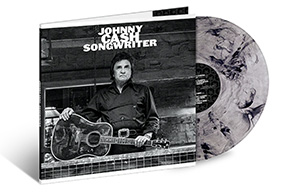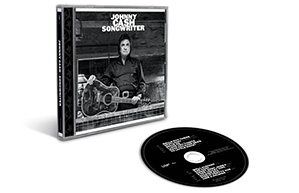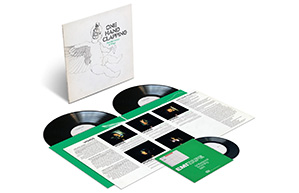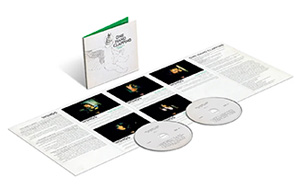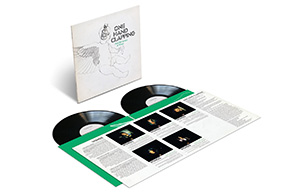The Best Of The Brill Building: 30 Timeless Pop Gems
An introduction to some of the best pop music of the 20th century, a style that was both innocent and sophisticated.
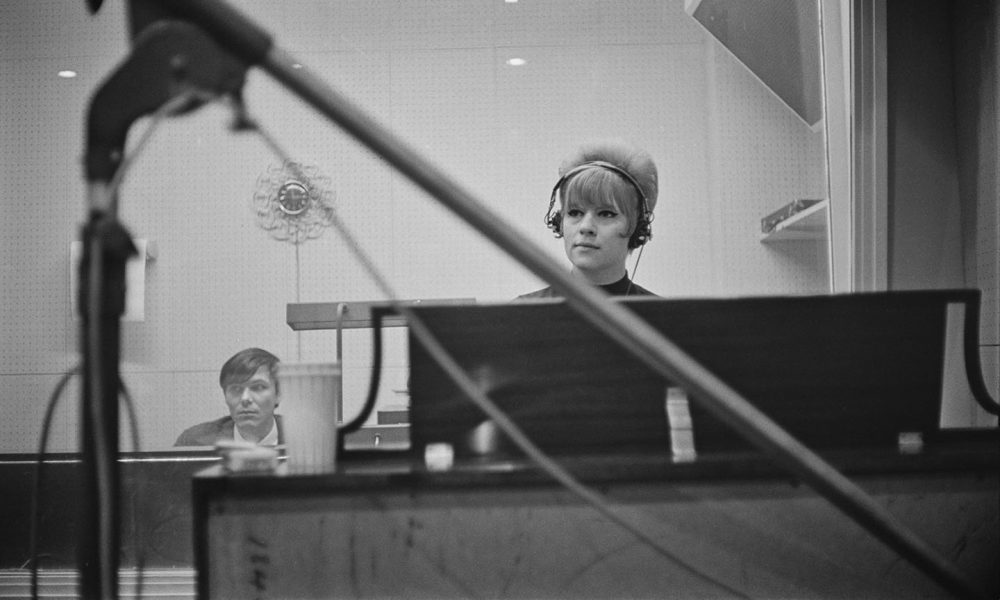
The Brill Building, at 1619 Broadway in New York City, gave its name to a style of pop music that was both innocent and sophisticated. Along with its less-glamorous neighbor at 1650 Broadway, this 11-story office block was the New York home of the music business – you could find a songwriter, a publisher, record a demo, and play it to a radio plugger, all in one building.
Among the tenants were some of the finest songwriting teams of the 20th century, including Goffin-King, Bacharach-David, Lieber-Stoller, Barry-Greenwich, and Mann-Weil. Between them, they penned scores of hits for the girl groups and teen idols who dominated the US airwaves between Elvis joining the army and the arrival of the Beatles and the Brit Invasion in 1964.
Below is our pick of some of the most timeless recordings from the Brill Building era – sticking with a self-imposed rule of one track per artist.
Looking for more? Check out the best Great American Songbook songs on Spotify.
The Chiffons – One Fine Day
For the follow-up to their 1963 hit “He’s So Fine,” this New York four-piece girl group turned to Brill Building pop songwriters Gerry Goffin and Carole King. Sticking with the “fine” formula, the husband-and-wife songwriting team came up trumps with “One Fine Day.” Almost two decades later, King took the song top 20 for a second time, when she “covered” it on her Pearls LP in 1980.
Ben E King – Stand By Me
The unexpected addition of Latin rhythms and sensibilities to what is essentially a southern soul record owes its origins to the Cubano-Ricano club nights around Broadway in New York. Monday Mambo at the Palladium was a haven for the Brill Building songwriters – including Jerry Lieber and Mike Stoller, who penned this classic that’s been covered by everyone from John Lennon to Muhammad Ali (Cassius Clay at the time).
Bobby Vee – Take Good Care of My Baby
The songwriters Gerry Goffin and Carole King followed up their success with “Will You Love Me Tomorrow?” on this number one hit for Bobby Vee. Born Robert Thomas Velline, Vee was first noticed as a stand-in for Buddy Holly, and, for a while, boasted a young Robert Zimmerman (later better known as Bob Dylan) as a member of his backing band. This song was released in July 1961 and was covered by the Beatles at their unsuccessful audition for Decca Records on New Year’s Day 1962.
Elvis Presley – Jailhouse Rock
The Brill Building pop songwriting team of Jerry Lieber and Mike Stoller connected with Elvis Presley over a shared passion. As Mike Stoller explained, before meeting Elvis, he and Lieber “thought we were the only two white kids who knew anything about the blues.” In his pioneering work of rock criticism, Mystery Train, Greil Marcus calls Jailhouse Rock Elvis’ best movie, noting that it “also contained his best movie music, partly because Lieber and Stoller were writing the songs.”
The Shangri-Las – Leader of the Pack
It may sound morbid, but for a while around the end of the 50s and start of the 60s, there was something of a craze for songs about teenagers dying tragic deaths. These teenage tragedy records were known as “death discs,” or more gruesomely as “splatter platters.” George Morton came up with the idea for this one, which he finished off with Jeff Barry and Ellie Greenwich at the Brill Building.
The Righteous Brothers – You’ve Lost That Lovin’ Feelin’
After successful appearances on the TV show Shindig, Bill Medley and Bobby Hatfield were signed by Phil Spector, who decided they were the perfect act to front his Wagnerian “You’ve Lost That Loving Feeling,” a deserved smash hit around the world. Written by Spector alongside Mann and Weil, it was chosen by the RIAA as one of the 25 Songs of the Century in 2001.
The Clovers – Love Potion No9
Hailing from Washington, DC, The Clovers owed a debt to The Coasters stylistically, and even secured a top 30 hit with a song originally written for the latter group. In a first and, presumably, last for pop music, this Leiber and Stoller number tells the bizarre tale of how the singer bought an over-strong aphrodisiac from a gypsy and ended up kissing a cop on 34th and Vine.
Manfred Mann – Do Wah Diddy Diddy
As if by way of illustrating that the British Invasion had well and truly usurped homegrown talent in the US, when The Exciters recorded the Jeff Barry and Ellie Greenwich number “Do Wah Diddy Diddy,” it did nothing. But when the London beat combo Manfred Mann covered it shortly after, it became a worldwide hit, topping the chart on both sides of the Atlantic.
Dionne Warwick – Walk On By
Dionne Warwick recorded one Bacharach and David song after another. “Anyone Who Had a Heart” was her first hit, followed by the devastating heartbreak of “Walk On By,” and a string of others. “The more Hal and I wrote with Dionne, the more we could see what she could do,” explained Bacharach. Hal David added, “There was nothing that Burt could write musically or I could write lyrically that she couldn’t do.”
The Carpenters – (They Long To Be) Close To You
Proving that a great song refuses to go away, “(They Long To Be) Close To You” was originally released by Richard Chamberlain in 1963, then recorded by Dusty Springfield in 1964, although her version was shelved until 1967. It became a worldwide hit The Carpenters in 1970. As Richard Carpenter explained, “That record, that song, the arrangement, all of it, is misleading to the uninitiated, because it sounds simple. And it’s anything but simple.”
Burt Bacharach/Billy J Kramer with the Dakotas – Trains and Boats and Planes
By 1965, Brill Building pop songwriters Burt Bacharach and Hal David were enjoying global success, and this number reflected (in particular) Bacharach’s jet-setting lifestyle. He was spending much of his time in England, which is how this song came to the attention of Beatles manager Brian Epstein, who suggested it for one of his other groups, Billy J Kramer with the Dakotas. Bacharach and Billy J’s versions both charted simultaneously.
The Shirelles – Will You Love Me Tomorrow
The first US number one by a black female group, the aching “Will You Love Me Tomorrow?” has gone down as one of the greatest Brill Building songs in history – but the Shirelles almost turned it down, thinking it too country for them. “I can’t do this song because I don’t think it’s a Shirelles song,” lead singer Shirley Owens told producer Luther Dixon. Fortunately, he convinced her otherwise.
Jerry Butler – Make It Easy on Yourself
Having initially traded his gospel roots for an R&B partnership with Curtis Mayfield in The Impressions, Jerry Butler enjoyed a run of successful solo singles, including this timeless Burt Bacharach and Hal David song. Butler first heard the song in demo form, with vocals by an upcoming singer named Dionne Warwick, who would herself have a hit with the song in 1970.
The Ronettes – Be My Baby
Any list of the best-ever Brill Building pop songs will feature “Be My Baby” by The Ronettes near the top. But while it’s often rightly lauded for the arrangement, the production, and for Ronnie Spector’s perfect delivery, what is often overlooked is that all this decoration is hung from a brilliant pop song, written by Jeff Barry, Ellie Greenwich, and Phil Spector. As Brian Wilson said, “It has the promise to make the world better.”
Ike & Tina Turner – River Deep Mountain High
By 1966, Ellie Greenwich and Jeff Barry were divorcing, and they hadn’t written with Phil Spector for two years. The estranged nature of the writers meant that each brought their own parts to this song, which Spector stitched together to create a powerhouse of a single that could stand on its own two feet in 1966, a year of exceptionally high standards.
Jackie DeShannon – What the World Needs Now Is Love
In 1965, Burt Bacharach and Hal David were ahead of the trend. Two years before The Beatles told the world “All You Need Is Love,” Jackie De Shannon’s heavenly top 10 hit record was seen by some as a comment on the escalating war in Vietnam, proclaiming that love was “the only thing that there’s just too little of.”
The Beach Boys – I Can Hear Music
After the experiments that had defined their work through Pet Sounds and the aborted Smile, The Beach Boys looked to return to basics, and it was to the Brill Building they turned. With Brian Wilson taking a break from production duties, Carl stepped up to the plate, and it was his treatment of Jeff Barry, Ellie Greenwich and Phil Spector’s “I Can Hear Music” that marked the beginning of this next period in The Beach Boys’ career.
The Coasters – Yakety Yak
In rock’n’roll history, there aren’t many groups like The Coasters. For a start, they were already in their late 20s and early 30s while their witty and infectious take on doo-wop was being lapped up by teenagers. Songwriting team Jerry Lieber and Mike Stoller wrote a string of hit records for them, including “Searchin’,” “Poison Ivy,” “Charlie Brown,” and this number one from 1958.
Tom Jones – What’s New Pussycat?
Woody Allen’s first screenplay – the 1965 movie What’s New Pussycat? – featured a stellar cast, headed up by Peter Sellers and Peter O’Toole. But it was another Brit who received the film’s only Oscar nomination – the suave Welsh singer Tom Jones, who had a hit with Burt Bacharach and Hal David’s title song.
Little Eva – The Loco-Motion
“Little” Eva Boyd was Gerry Goffin and Carole King’s babysitter, although the young singer was barely younger than the songwriting couple. Having been inspired to write “The Loco-Motion” by Eva dancing with their daughter Louise, Goffin and King used Eva to sing on a demo of the song, with a view to offering it to Dee Dee Sharp. But Eva’s vocal was so good, they made a star of her – losing their babysitter in the process.
Sandie Shaw – (There’s) Always Something There to Remind Me
Hoping to appeal to the British love of great American R&B, Burt Bacharach took Lou Johnson to the UK to promote his single “(There’s) Always Something There to Remind Me.” However, it would be a British cover that made it a hit, when this 1964 version by Sandie Shaw replaced Roy Orbison’s “Oh, Pretty Woman” at the top of the British charts.
The Animals – We Gotta Get Out of This Place
While the Brit Invasion would ultimately inspire many aspiring groups to become songwriters, it’s worth remembering than many of those early Brit Invasion hitmakers were raised on a diet of American songs – and Newcastle’s The Animals were no exception. Having enjoyed a global smash with “The House of the Rising Sun,” they turned to the Brill Building for more hits. This Barry Mann and Cynthia Weil composition was just the ticket.
Dusty Springfield – I Just Don’t Know What To Do With Myself
Arguably Britain’s favorite female singer during the 60s, Dusty Springfield was a huge fan of two of the Brill Building’s most celebrated songwriters: “Bacharach and David changed pop music,” she said. As well as this UK top 3 single, she had a hit with another of their songs, “Wishin’ and Hopin’,” as well as including their “Twenty-Four Hours from Tulsa” and “Anyone Who Had a Heart” on her debut LP.
Gene Pitney – Twenty-Four Hours from Tulsa
Few of the Brill Building songwriters made a name for themselves as performers. But as well as having penned hits such as “Rubber Ball” for Bobby Vee, “Hello Mary Lou” by Rick Nelson, and “He’s a Rebel” by The Crystals, Gene Pitney enjoyed a remarkable run of singles as a singer, spanning three decades, including this classic from the pens of Burt Bacharach and Hal David.
Cass Elliot – It’s Getting Better
Following the split of The Mamas and the Papas, ‘Mama’ Cass Elliot set out on her own, scoring hits with two songs from the husband-and-wife songwriting team of Barry Mann and Cynthia Weil – “It’s Getting Better” and “Make Your Own Kind of Music.” The former was a top 10 UK hit, despite competition from a cover version by former Manfred Mann frontman Paul Jones.
The Walker Brothers – Walking in the Rain
By 1967, much of the innocence those Brill Building writers packed into their songs had been replaced mind-expanding drugs and the war in Vietnam – among many other things. And yet so perfectly timeless and universal were so many of those songs that they remained relevant still. “Walking in the Rain” had originally been a hit for The Ronettes in 1964, but its cinematic scope was perfect for The Walker Brothers, whose rendition was their farewell single.
Dion & the Belmonts – A Teenager in Love
With “why must I be a teenager in love?,” Doc Pomus and his songwriting partner Mort Shuman cut straight to the heart of rock’n’roll. Hailing from the tough streets of the Bronx, Dion had initial misgivings about such a romantic song, but it made him a star.
The Paris Sisters – I Love How You Love Me
With an opera singer for a mother, The Paris Sisters had been singing together as long as they could remember. Their breakthrough finally came with this sweltering Barry Mann and Larry Kolber Brill Building pop song in 1961.
The Beatles – Baby It’s You
If you’re lucky enough to stumble on a setlist of the pre-fame Beatles, you’ll find it riddled with songs by American girl groups. For their first LP in 1963, they included not one but two covers of songs by The Shirelles – “Baby It’s You” and “Boys.” However, LA rock band Smith trumped both bands, when their rock-soul version of “Baby It’s You” went US top 5 in 1969.
Looking for more? Check out our history of the Great American Songbook.


